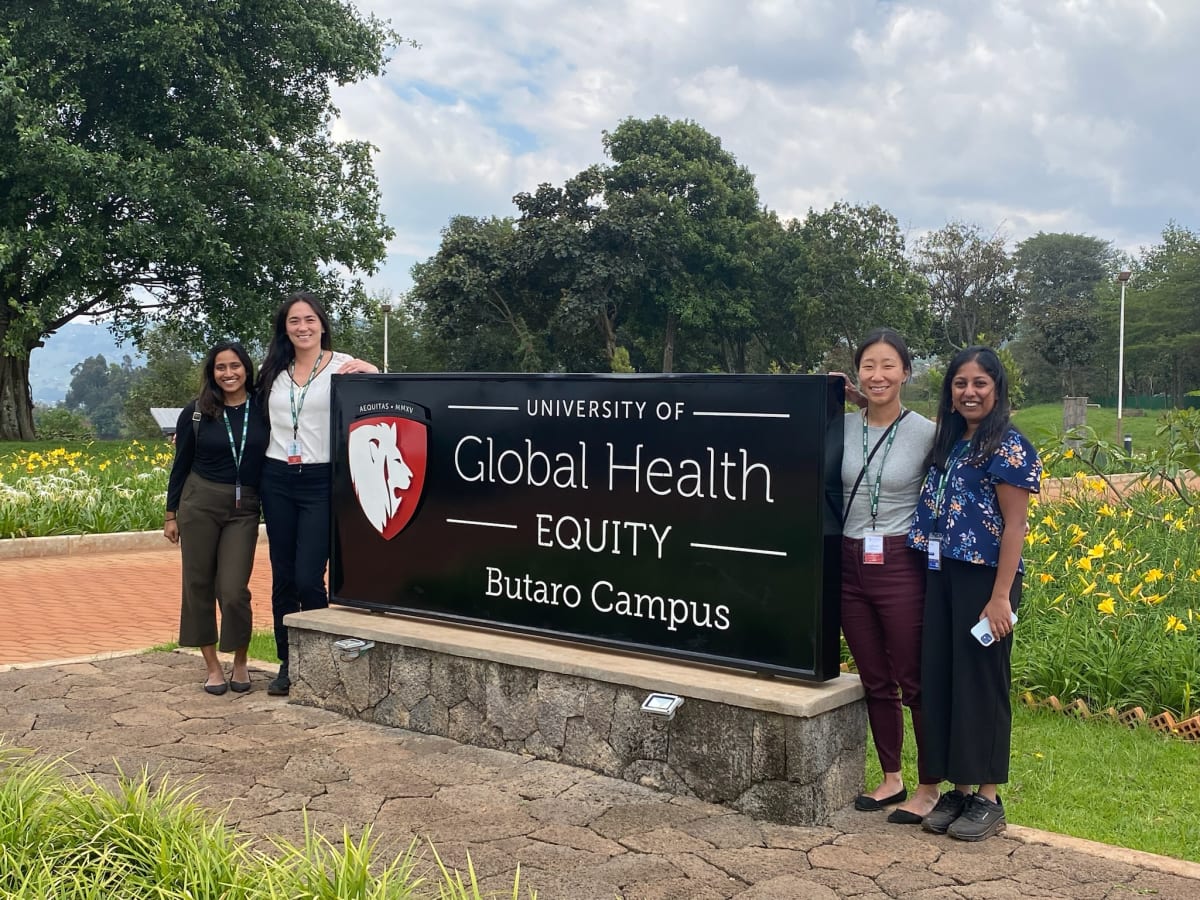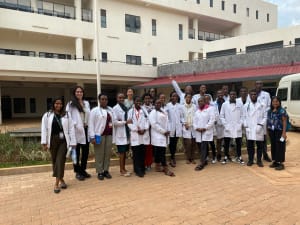I will be teaching medical students at the University of Global Health Equity in rural Rwanda. The school was founded by the late Paul Farmer and is supported by his non-profit, Partners in Health. It is one of only 4 medical schools in the entire country, and the pre-clinical courses are taught all by visiting faculty.
The school's mission states: "to radically change the way health care is delivered around the world. UGHE is a new university based in Rwanda that is building the next generation of global health professionals—doctors, nurses, researchers, and public health and policy experts—into leaders and change makers who strive to deliver more equitable, quality health services for all. We’re reimagining health education to ensure that quality health care reaches every individual in every corner of the globe."
Medical students will benefit directly from my project-- I will be teaching them basic pediatric life saving skills for their "boot camp" week. The second week, I will be orienting them to the hospital wards and how they can make the most of their rotations and seeing patients. I funded my own travel to complete this work last year, and thus, am familiar with the hospital and how to best support medical students there.
Secondly, we hope that by training future Rwandan doctors, they will in turn invest in their own community, thus raising the health of an entire nation.
I hope that our work will have a "trickle down" effect, leading to improved healthcare and infrastructure in the future. I heard it best described as us "planting seeds" of change. By teaching the next generations doctors, we hope that we can lay the foundation for the next generation of healthy children who turn into healthy adults. As our webpage eloquently states: "Our unique focus on practical experience outside the classroom ensures that students understand the complexity of delivering care in all settings. We prepare our students to serve in any environment with humility and compassion. Our graduates will serve as government officials developing innovative policies to expand life-saving programs. They will be clinicians who diagnose and treat physical and social factors making their patients sick. They will lead programs and NGOs to improve health and save lives."






Our program hopes to educate the brightest and most driven medical students in Rwanda at one of three medical schools in the country. This program focuses on educating East African doctors to provide excellent care to patients of Rwanda. In return for free education, these students commit to serving an underserved area in Rwanda for 6 years. The medical school relies heavily on visiting and local faculty to teach the curriculum, and the Dox Foundation allowed me to be one of these visiting teachers. I appreciate this program because it allows me to have sustainable involvement in a global health project and help plant seeds for future change.